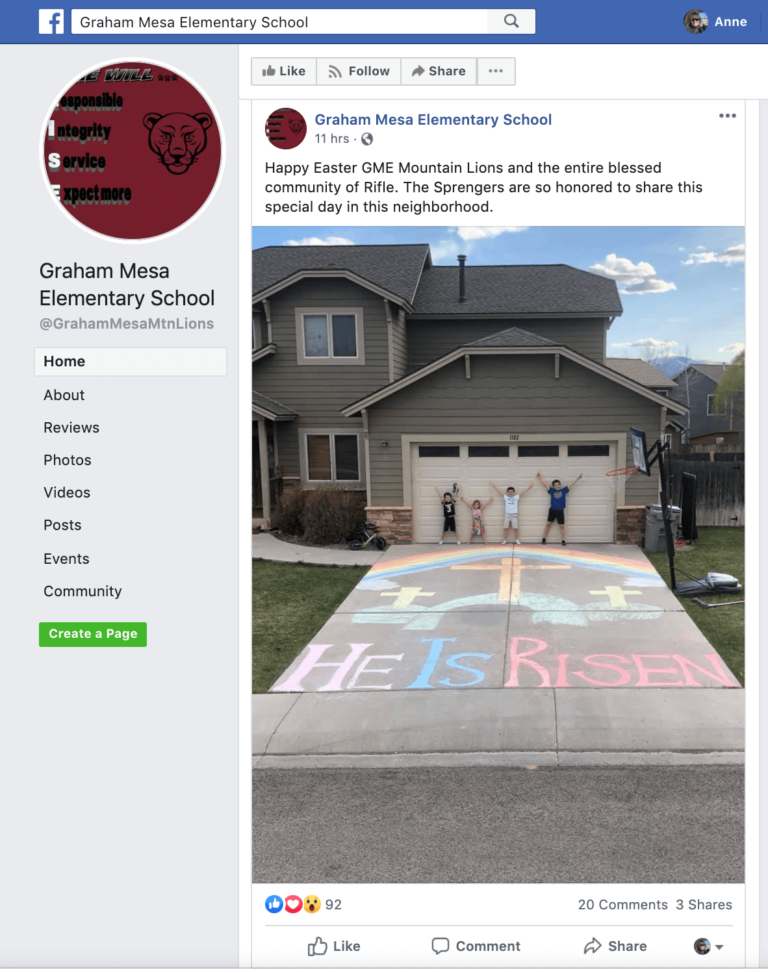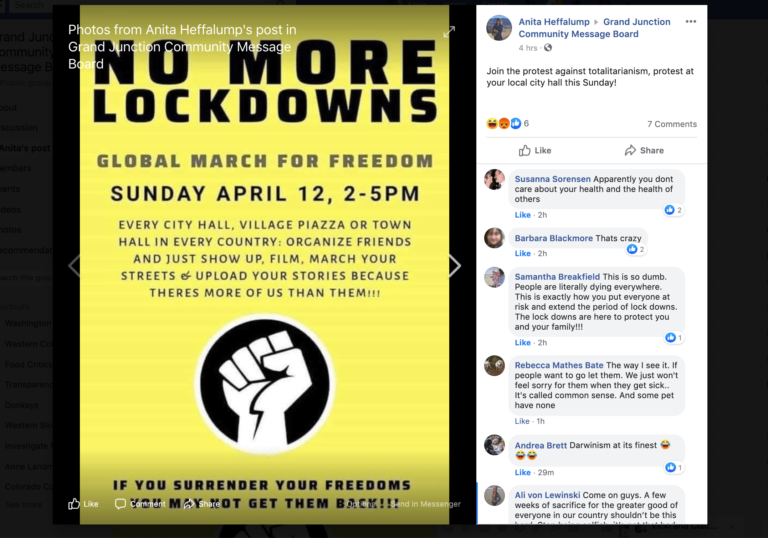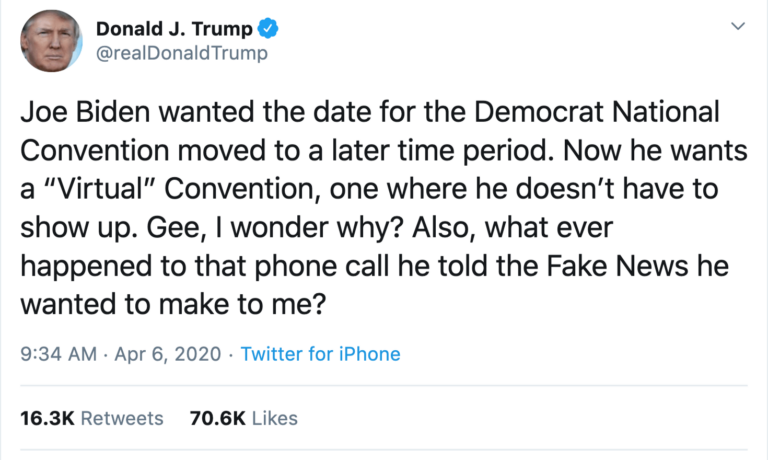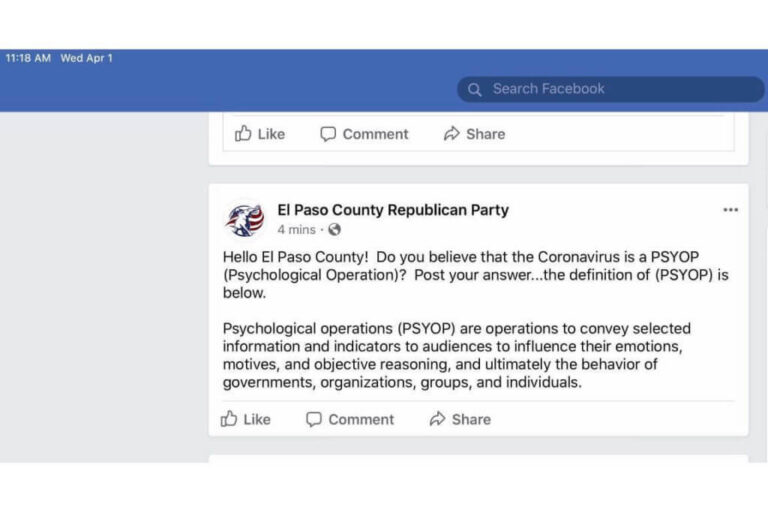County Commissioner Candidate Janet Rowland endangers public health with misleading, Q-Anon-linked posts on social media
April 14, 2020
4 Comments
Mesa County Commissioner candidate Janet Rowland (R) has been posting misleading information about Coronavirus on her campaign Facebook page that is linked to the nutty ...
Read More →
School’s social media post violates separation of church and state, was removed hours later
April 12, 2020
16 Comments
The principal of a public western slope elementary school posted a message on the school’s Facebook page April 11 that overtly endorsed Christianity in violation ...
Read More →
Western slopers who fail to grasp danger of Coronavirus are threatening public health
April 10, 2020
11 Comments
Local resident Anita Heffalump alarmed members of the community yesterday by posting an event on the Grand Junction Community Message Board Facebook page that ...
Read More →
Kathryn Bedell, DVM enters County Commissioner race for District 1
April 8, 2020
5 Comments
Don’t want Cody Davis or Ray Scott as Mesa County Commissioner? Well now you finally have a better option. Mesa County voters finally have a ...
Read More →
In our most desperate time of need, America has a completely self-obsessed idiot for a president. Thanks, Republicans.
April 6, 2020
6 Comments
Above this post is a tweet that the President of the United States of America, Donald J. Trump, actually posted this morning at 9:34 a.m. ...
Read More →
El Paso County GOP pushes out their leader after she publicly suggests Coronavirus pandemic is a hoax
April 4, 2020
1 Comment
There may be hope for Colorado’s Republican Party, at least in El Paso County. El Paso County elected Republicans took immediate steps to remove their ...
Read More →





